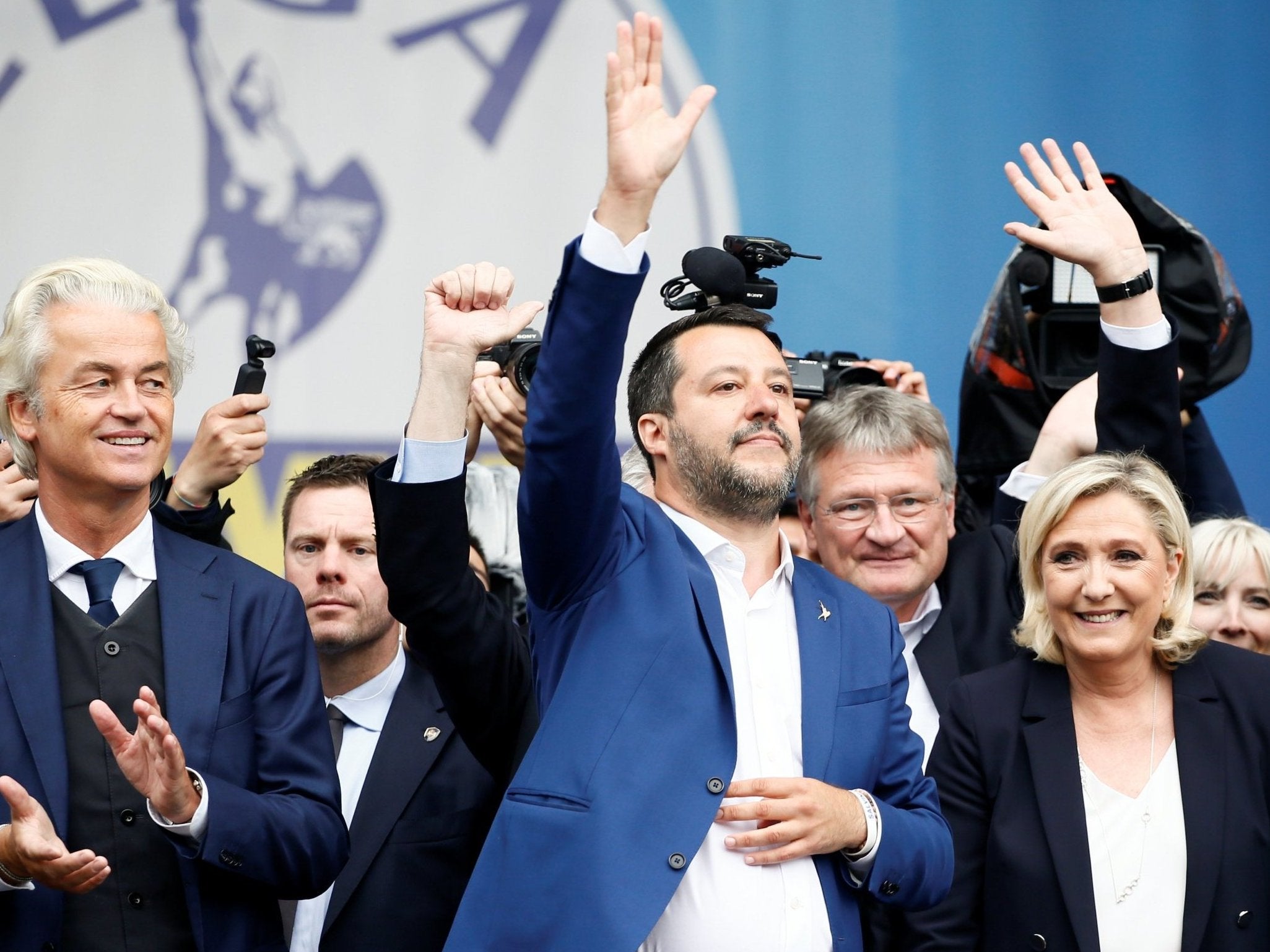As Marine Le Pen has proved in France, the rise of the populists is finally going into reverse
Intellectuals predicted the unstoppable conquest of the populist anti-European right. But a simple immigrant-bashing contempt for European partnership is not enough to hold a party together, writes Denis MacShane


It seems only yesterday that we were told the rise of right-wing national populism was unstoppable. In 2016, the victory for Brexit and Trump and the surges of Marine Le Pen, Matteo Salvini, Geert Wilders, the AfD in Germany and Vox in Spain were all fusing into a rightist take-over in Europe, threatening the continuing existence of the European Union.
Academics such as Matthew Goodwin, Cas Mudde, and Catherine Fieschi, and many of their continental colleagues, moved from the lecture hall to mainstreaming on TV and comment pages with books and articles proclaiming the new era of border-shutting, Islamophobe – or in Britain, Europhobe – politicians.
Binary divisions of voters into “somewhere” people who backed inward-looking nationalist solutions and “anywhere” people who were tolerant supporters of liberal values and who backed open societies and open economies were promulgated.
But it hasn’t quite turned out as Steve Bannon and the Policy Exchange stable of rightist critics of Europe and progressive liberalism predicted.
Last weekend’s French municipal elections saw Marine Le Pen lose nearly half of the seats she held in 2016.
She had put the Union Flag on her Facebook page in June 2016 and sent enthusiastic congratulations to Boris Johnson. But as Brexit stopped UK growth dead in its tracks and unleashed the miserable political confusion of the last four years, Le Pen quietly dropped her party’s demands for a referendum on leaving the EU and replacing the Euro with the French franc.
Something similar happened in Italy, where Matteo Salvini’s Lega Party moved from representing the interests of northern Italian industrial capitalism, which hated taxes and social spending on the poorer south, to being a crude immigrant-bashing racist party with Salvini wrapping the rosary around his fingers at every public appearance.
Instead, it was the centre-left Partito Democratico that took over in coalition with pro-EU parties.
Almost everywhere except under Britain’s first-past-the-post system it has been Greens who are now the rising force in European politics. They were the big winners in France at the weekend and have all but displaced the once-mighty German social democrats as the main opposition party in Germany.
Le Pen’s former boyfriend won Perpignan but did so without any reference to her National Rally party or her picture anywhere on his posters or literature.
The intellectuals who theorised the unstoppable conquest of the populist anti-European right were not political historians who might have told them of the fissiparous centrifugal nature of most populist rightist politics, with major splits and personality conflicts rising to the top. A simple immigrant-bashing, frontier closing, contempt for European partnership is not enough to hold a party together.
In fact, if anything, left populism has been more effective in winning power than right populism. Syriza in Greece, with Europe’s most flamboyant left populist demagogue, Yanis Varoufakis, formed a government that lasted four years once it dumped Varoufakis onto the European conference circuit and focused on pragmatic policies in cooperation with the European Union. In Spain, the left populists of Podemos are junior partners in the socialist pro-EU coalition led by Pedro Sanchez.
Labour took a left populist turn under Jeremy Corbyn and his shadow cabinet, but he and his Momentum camp followers hollowed out Labour’s social democratic working class support and refused to campaign in support of Europe.
There are nationalist leaders in Europe that hold on to power in Hungary and Poland but do so by strong social spending and pro-poor policies. Both Viktor Orban and Jarosław Kaczynski indulge in carefully chosen Brussels bashing but never to the extent of threatening the massive budget transfers from the EU or the right of Poles and Hungarians to travel and work anywhere in Europe.
The classic post-1945 binary divide in Europe between a centre-right and a centre-left politics with a little room for fence-straddling liberals is over. In the European Parliament, and most national parliaments, there is now a profusion of political parties. In the UK, Scotland has opted for a populist nationalist party but one that insists it is pro-European and seeks to apply classic social democratic social policies. In Ireland, the Green Party is the pivot of the new coalition arrangements.
The key test will be America in November. If Trump loses, then the 2016 proclaimed arrival of irresistible rightist populism will be over. Only the crumbling populist Brexit project in Britain, where 58 per cent say they wish we could remain in Europe, is still in Boris Johnson’s political intensive care unit.
Denis MacShane is a British former politician who served as minister of state for Europe from 2002 until 2005. His latest book is ‘Brexiternity. The Uncertain Fate of Britain’. He writes on European policy and politics
Join our commenting forum
Join thought-provoking conversations, follow other Independent readers and see their replies
Comments